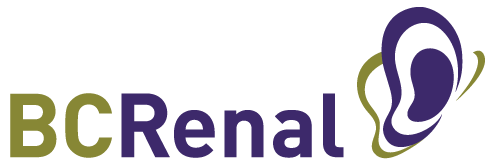 Dr. Mike Bevilacqua is a Fraser Health nephrologist based in Surrey, British Columbia, who has dedicated the past seven years of his work life as a health care provider for people living with kidney disease. But his interests also extend to driving systems-level changes in the delivery of kidney care, and he has taken on numerous quality improvement and research initiatives to reach these goals.
Dr. Mike Bevilacqua is a Fraser Health nephrologist based in Surrey, British Columbia, who has dedicated the past seven years of his work life as a health care provider for people living with kidney disease. But his interests also extend to driving systems-level changes in the delivery of kidney care, and he has taken on numerous quality improvement and research initiatives to reach these goals.
Some of these initiatives are through his role as chair of the BC Renal provincial Kidney Care Clinic (KCC) committee, which oversees operations at 15 clinics in BC. A key project the KCC committee has taken on since the beginning of the COVID-19 pandemic includes implementing and evaluating a virtual care program. The goal here, Bevilacqua says, is to find the best way to combine new virtual tools with services that the clinics have always used, to better serve patients.
As a nephrologist who specializes in treating a hereditary form of kidney disease called autosomal dominant polycystic kidney disease (ADPKD), he has also led several initiatives with the BC Renal ADPKD Advisory Committee, in collaboration with patient partners who bring their lived experience to the table.
“Our focus is on the question, ‘How do we get high-quality clinical tools for ADPKD available to people across the province, no matter where they live,’” explains Bevilacqua, noting that this can be a significant challenge in a large province such as BC, where resources can vary greatly between large cities and smaller remote towns. “If we don’t have something that works for a small remote community equally as well as it works for a major urban center, we don’t have a real solution.”
For these reasons, Bevilacqua has been leading some studies to compare CT scans and MRIs as a way of assessing ADPKD, as well as standardizing ways of measuring total kidney volume, which can be used by radiologists who are not as familiar with the condition. For example, some medical clinics in remote areas may have a CT scanner, but not an MRI machine. Therefore, Bevilacqua’s team is interested in outlining protocols whereby CT scans can be optimized to use lower radiation doses, providing patients in remote areas with an option that’s safer than usual CT protocols, just as effective as an MRI scan, and closer to home.
Given Bevilacqua’s extensive work on committees and quality improvement studies, it’s easy to forget that – in reality – he spends three-quarters of his time treating individual patients at his clinic. But he emphasizes that this balance in his work is a perk.
“Most of my day-to-day work is treating and problem-solving for individual patients, which is great and I love doing that,” Bevilacqua says. “But I like to shift gears every now and again and engage different parts of my brain in systems-level problem-solving, where the changes we make don’t just affect one person but rather can improve care and outcomes for many different people living with kidney diseases.”
“We have roughly 1,400 ADPKD patients in the province and about 14,000 patients who receive care through our Kidney Care Clinics,” notes Bevilacqua. “With this many patients under our care, even relatively small changes through our quality improvement initiatives translate into benefits for a lot of people living with kidney diseases. Seeing these benefits magnified across the province is incredibly satisfying for me and our team.”

